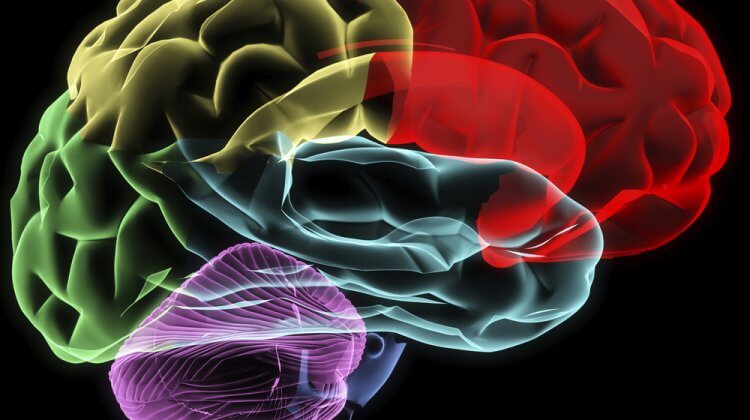
4. Anabolic Steroid Therapy and Moods
Hermann and Beach (1976), in a review of the psychotropic effects of androgens, concluded that ‘…androgen deficiency appears to cause a slowing down of both physical and mental functions, a reduction in libido and potency, and a tendency towards moodiness and depression. Conversely, androgen excess seems to stimulate physical and mental function, and to induce assertiveness rather than passivity, although the degree to which these people are overtly aggressive is somewhat unclear.’ Hermann and Beach also concluded that, ‘As yet no work, to our knowledge, has been done on the possible contribution that the reported variations in hormone levels make to the changed behaviour of those who become mentally disordered, nor to their exact role in metabolic changes which are supposed to accompany such illness.’ Unfortunately, although a number of studies have been conducted over the intervening years, little can be added to their conclusion at this point in time. This following section summarises research and clinical observations and effects in individuals with androgen deficiencies receiving androgen therapy.
Franchi et al. (1978) reported a marked increase in libido and sexual, physical and/or mental activities in all 34 hypogonadal male patients (18 to 49 years) given testosterone undecanoate (40 to 60 mg/day, orally) for 8 months when compared with a withdrawal period (3 weeks). Unfortunately, no information concerning the questionnaires used to assess the behavioural and mood changes is provided. No side effects were reported by any of the patients throughout the 8 months of therapy.
Franchimont et al. (1978) found improved mental and physical activity at 3-week intervals over 9 weeks in 7 and 2 of 10 hypogonadal male patients (16 to 51 years), respectively, undergoing therapy with oral testosterone undecanoate (120 to 240 mg/day). Again, no information is provided concerning how behavioural and mood changes were measured.
Luisi and Franchi (1980) in a double-blind, randomised, group comparative study of testosterone undecanoate (120 mg/day orally) and mesterolone (150 mg/day orally) in hypogonadal male patients found that testosterone undecanoate but not mesterolone induced a marked improvement in both sexual activity and mental state (unpublished modified Koch’s Mood Questionnaire) after 2 weeks. These improvements continued for the duration of the 4-week study. No side effects were reported in either group of patients. Using the Lorr and McNair Mood Check List in a double-blind crossover design, Skakkebaek et al. (1981) found significantly improved self-ratings of tension/anxiety and fatigue, a higher level of vigour, but no change in depression with androgen replacement (testosterone undecanoate 160 mg/day orally) versus placebo capsules (oleic acid) in 6 hypergonadotrophic (castration or primary testicular failure) and 6 hypogonadotrophic (hypothalamic or pituitary deficiency) men with hypogonadism. The study was conducted over a 4-month period (2 months on placebo and 2 months on testosterone undecanoate). In addition, there was a significant reduction in self-rated anger during testosterone administration. O’Carroll et al. (1985) also reported significantly improved well-being (4 of 10 self-reported visual analogue scales) with androgen replacement (testosterone undecanoate) in 8 hypogonadal men. A significant does response relationship for well-being was demonstrated with increasing doses (40, 80, 120, 160 mg/day orally) over 4 months.
Wu et al. (1982) using a double blind crossover design and the Lorr and McNair Mood Adjective Check List found no significant change in self-reported mood (anxiety/tension, depression, anger, vigour, fatigue) or energy in 4 adult men (30 to 48 years) with Klinefelters syndrome, low normal testosterone levels and normal sexual activity and interest given testosterone undecanoate (160 mg/day orally) for 8 weeks compared to placebo (8 weeks) and a baseline period of no treatment (8 weeks).
In a double-blind experiment, Davidson et al. (1979) found no consistent relationship between mood (Profile of Mood States) and androgen administration in 6 adult hypogonadal males receiving testosterone enanthate (100 or 400 mg/month in 2 doses) and a placebo treatment in randomly assigned 4-week periods over a 5-month period. Although frequencies of erections showed significant dose-related responses which closely followed the fluctuations in the serum testosterone levels, individual records showed only 1 clear instance of change in mood (POMS) related to treatment (1 subject showed peak increases in anger 1 week after receiving treatment after guessing that he was on placebo). Salmimies et al. (1982) also found no significant differences in biweekly mood ratings when comparing 15 adult hypogonadal male patients administered increasing doses of testosterone enanthate (25, 50, 100, 250mg or placebo) injected over a 5-month period. Each dose was given twice (every 2 weeks) over 4 weeks.
Results from the preceding studies are mixed (table II). Some demonstrate significant positive psychological changes with anabolic-androgenic steroids, others do not. However, no adverse or undesired psychological or behavioural effects were observed in these studies. Interestingly, 5 of the 6 studies which administered oral androgens reported improved mood states following therapy (with the exception of the mesterolone group of Luisi and Franchi); the results of the 2 studies using intramuscular injections of various testosterone esters found no change. However, it should be noted that only perhaps 1 or 2 of the doses administered in these 2 studies (200mg biweekly and 250mg biweekly) would restore and maintain normal physiological testosterone levels and full androgenic function for the entire duration between injections.
O’Carroll and Bancroft (1984), in a carefully controlled double-blind crossover comparison of biweekly injections of 250mg of testosterone esters (‘Sustanon’) or placebo in 2 groups of men (n=20) with normal testosterone levels, likewise found no significant change in mood ratings (10 self-reported visual analogue scales) following 12 weeks of treatment (half the subjects in each group received 6 weeks of testosterone followed by 6 weeks placebo, and the other half vice versa).
Part 5: Steroids and Mental Health
Originally appearing in Sports Medicine 10(5) 303-337. 1990. Copyright © 1990 by Adis International Limited. All rights reserved. Reprinted by MESO-Rx with permission. Any duplication of this document by electronic or other means is strictly prohibited.
About the author
Warning: Undefined array key "display_name" in /home/thinksteroids/public_html/wp-content/plugins/molongui-authorship-pro/includes/hooks/author/box/data.php on line 11
Warning: Undefined array key "display_name" in /home/thinksteroids/public_html/wp-content/plugins/molongui-authorship-pro/includes/hooks/author/box/data.php on line 11
Warning: Undefined variable $show_related in /home/thinksteroids/public_html/wp-content/plugins/molongui-authorship/views/author-box/parts/html-tabs.php on line 30



Leave a Reply
You must be logged in to post a comment.